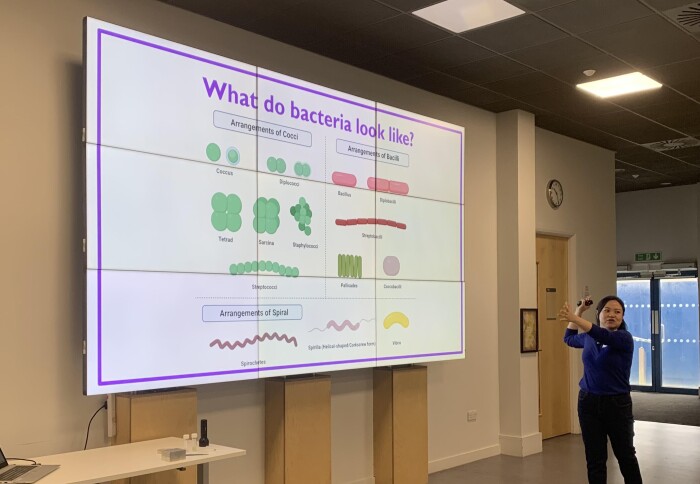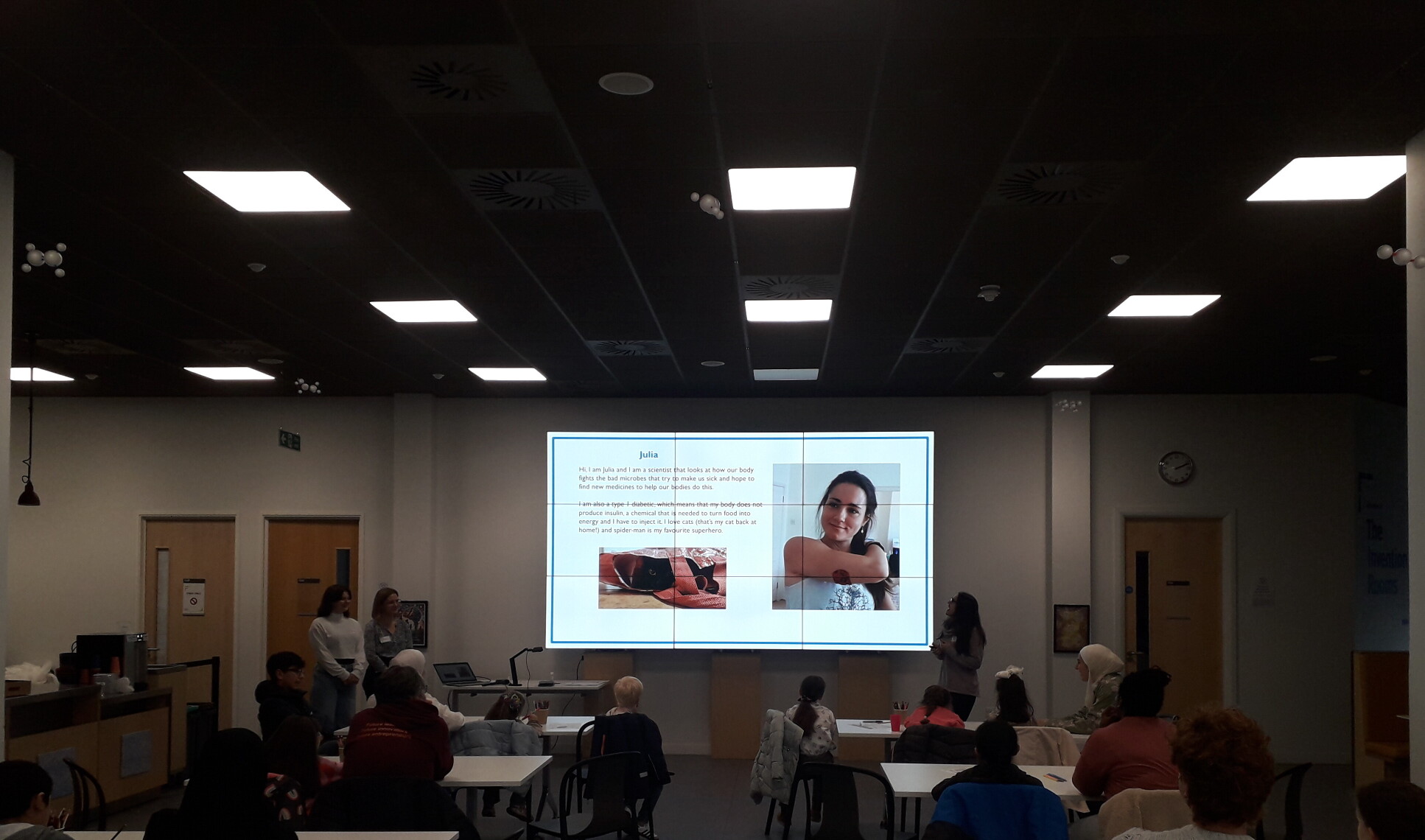Inspiring the next generation of microbiologists at the Invention Rooms
by Emily Govan

Workshops at Imperial's White City campus Invention Rooms have inspired youngsters from the local community to become the microbiologists of tomorrow.
The workshops, focused around microbes and the immune system were organised by Julia Sanchez Garrido, a postdoc in Imperial’s Department of Life Sciences, along with volunteers from the Centre for Bacterial Resistance Biology and the White City Public Engagement team.
The day gave families in the local area the opportunity to learn all about science, show why science matters and make scientists more approachable! Researchers got the chance to practice delivering scientific content to the general public, watch children feel the excitement of conducting scientific experiments - and remember that what they consider part of their routine is fascinating to others.

"When a child says: ‘I want to be a scientist when I am older’, and parents ask amazing questions like: ‘can cells talk with each other?’, it makes the effort more than worth it!" Julia Sanchez Garrido
Julia said: ‘I initially choose to organise these workshops because I think that, as scientists, we need to be better at conveying that we are just normal people trying to understand and make the world we live in better. When a child says: ‘I want to be a scientist when I am older’, and parents ask amazing questions like: ‘can cells talk with each other?’, it just makes the effort more than worth it!’
Microbe Mania
In the MicrobeMania workshop, the participants learned about how tiny bacteria are, where they live and that there are both good and bad bacteria - as well as how we can use them in our investigations. This began with an introduction to the world of microbes, interacting with the participants and highlighting how bacteria can make us sick but also can be very good for us.
Participants got to see first-hand how easily bacteria spread and the importance of washing your hands. Then there was the opportunity to build their own bad bacterium, with ‘weapons’ that make it better at making us sick, for instance secretion systems, efflux pumps and flagella. The workshop finished by with some hands on ‘lab work’, making some bacteria green via a bacterial transformation, underlying underlining how important it is to study bacteria in the lab to be able to fight them better – as scientists do in real life!
Guardians of the Body
In the Guardians of the Body workshop, the participants learned about the importance of the immune system and how immune cells can fight off bad microbes trying to infect us and make us sick. Participants were given a scenario where they tested some samples using a lab test called an ELISA. Then the results were discussed and the use of controls explained, as well as debating how to proceed when results are inconclusive.
This was followed by a well-illustrated explanation of immune cells and their ‘cool’ abilities, which attendees took inspiration from to design their own ‘super’ immune cells, giving them special abilities that allow them to fight microbes.
"The workshop is a deeply rewarding experience. It offers a unique opportunity to communicate science to a diverse range of audiences, from hands-on learning with children to insightful discussions with parents and guardians" Ashima Wadhawan Volunteer
To finish off and emphasise the importance of the immune system in fighting infection, participants were shown how antibodies fight bad microbes inside the body. Concepts of antibody specificity and immune memory were discussed, using different sized tweezers and small pieces of pasta and pipe-cleaners to represent more-or-less specific antibodies and the harmful microbes respectively, and slime to represent our tissues which make the antibodies (tweezers) struggle more to find the microbes.
 The activities were followed by a quiz and the attendees were then able to pack their creations (air-dry clay superbugs or immune cells) to take home.
The activities were followed by a quiz and the attendees were then able to pack their creations (air-dry clay superbugs or immune cells) to take home.
Ashima Wadhawan, one of the volunteers, said: ‘I have been volunteering at this workshop since its inception, and it has always been a deeply rewarding experience. It offers a unique opportunity to communicate science to a diverse range of audiences, from hands-on learning with children to insightful discussions with parents and guardians.’
Andrew Brooks, Public Engagement Practitioner at the Invention Rooms, said: ‘It was an amazingly well organised activity, which I could see families enjoyed hugely during the two-day takeover of The Invention Rooms! It was great to see so many researchers take time out to help deliver activities and chat to families. The highlight was seeing parents and children able to ask researchers questions as they went around the room and seeing really good conversations between researchers and local families as well as thee creative ideas that children had around their germs and immune cells.’
Find out more
If you are a researcher at Imperial and would like to organise a workshop for families based around your work, please contact Andrew Brooks to find out more.
Article text (excluding photos or graphics) © Imperial College London.
Photos and graphics subject to third party copyright used with permission or © Imperial College London.
Reporter
Emily Govan
Department of Life Sciences